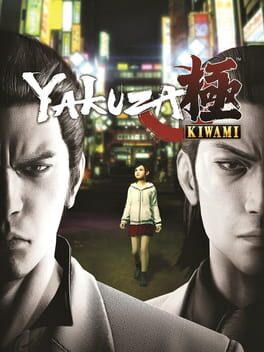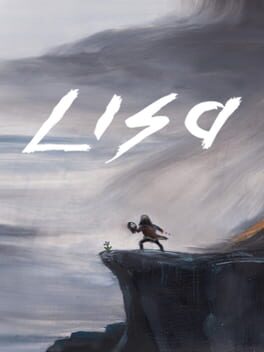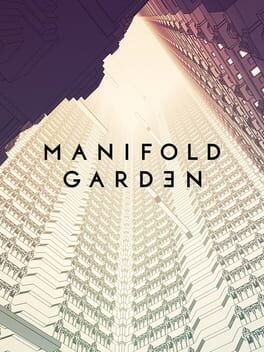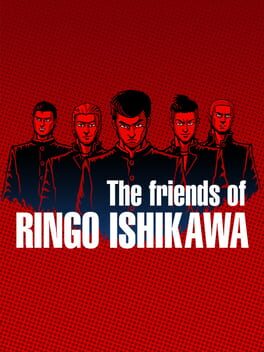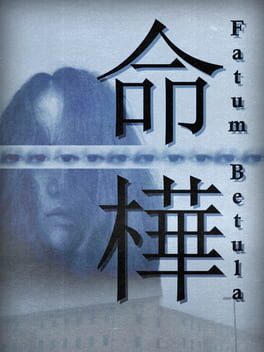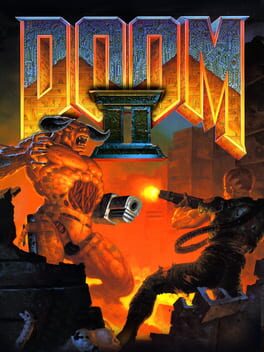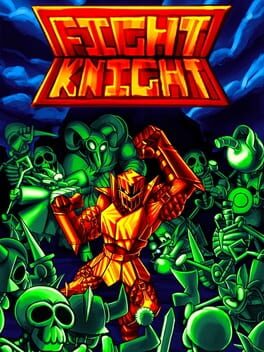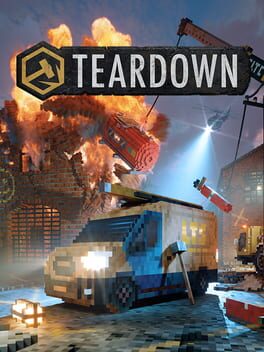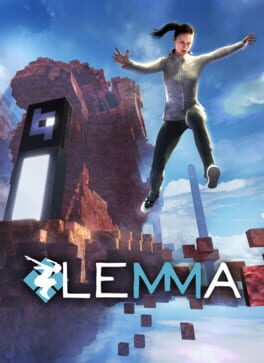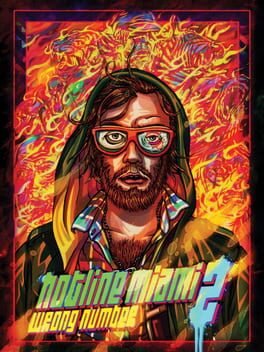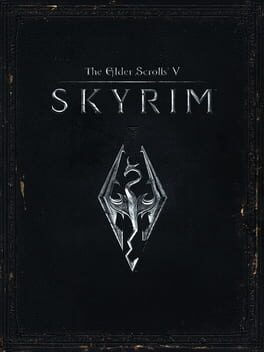AstrinSchmidt
2005
This game is so thematically dense, so narratively obscure, and politically charged, it almost pushes against attempts at understanding its story, which is further highlighted by the simplicity of its mechanics, and the dead-easy puzzles. I feel like killer7 represents the apex of artistic expression in commercially-released titles, and it's a shame to see that it is now up to small indie developers to carry on making interesting, novel games, while half-baked yearly releases get most of the money.
Overall, killer7 hardly even warrants an extensive review, because it is a game to be experienced for oneself, and thus any meaningful analysis would just be spoiling it for those yet to have done so. It is an experience that I would recommend to anyone who can handle politics, rape, murder, and a bit of repetitive gameplay, and I truly believe that it is worth experiencing for anyone looking for something interesting, and different.
Overall, killer7 hardly even warrants an extensive review, because it is a game to be experienced for oneself, and thus any meaningful analysis would just be spoiling it for those yet to have done so. It is an experience that I would recommend to anyone who can handle politics, rape, murder, and a bit of repetitive gameplay, and I truly believe that it is worth experiencing for anyone looking for something interesting, and different.
2016
While a definite step down from RGG0 in pretty much every way, this game still offers a fun and fulfilling bet-'em-up and digital tourism experience. The story is a bit weak in my opinion, especially when compared to that of 0, and the way the game tries to combine the tone of the original game with the wackier, more upbeat tone of 0 often leads to disastrous results (Majima Everywhere). Nevertheless, the game is definitely solid, having a great foundation to build upon, being Yakuza 0. The combat is slightly improved, though only half of the fighting styles from 0 are present, and there are 78 substories. Surprisingly, there are no arcade games this time around, though that is probably for the best.
Overall, play this if you like Yakuza 0 -- there's no real reason not to.
Overall, play this if you like Yakuza 0 -- there's no real reason not to.
2014
I don't really understand the hype around this game. The "meaningful choices" mostly just felt like mechanical decisions, rather than tests of character (do you want to permanently de-buff the main character, or permanently lose this guy you were going to replace, anyway? I picked the latter), resulting in a game which seemed to aim to frustrate by actively weakening you as you went further into the game (or trying to -- more on that later) but ended up just making sacrifice feel par per course, and not particularly impactful.
Beyond that, you're left with a pretty fun RPG where you can experience a story which, while pretty tragic, has far too much comedic relief and too little, if any, actual development in the characters to really leave a lasting impact -- Brad's journey mostly feels like a short jog from point A to point B, point B being Buddy, who is constantly moving farther away; Gaining acquaintances, losing limbs, getting robbed, none of this particularly fazes Brad as he finds the various McGuffins he needs to continue on his path to save Buddy. Brad never finds retribution, never stops to question his actions, never forms new and meaningful connections, nothing. Buddy spends the whole game running away and cursing Brad, with whatever character development she might have clearly reserved for the DLC. Most of the companions are essentially just gags, with no banter, sidequests, or anything to make them serve a purpose beyond helping Brad in battle with ridiculously powerful status effects (allowing me to easily kill the secret superboss on my first try after being robbed of all of my stuff), dishing out damage, and serving as cannon fodder for the various story beats which threaten to permanently kill your party members (as well as suffering from insta-kill moves which also permanently kill them, but I wasn't terribly affected by those because, like any sane person, I played on normal mode for my first run). Essentially, you're given a glimpse into a terrible, satirical world, and a character study of a man broken by years of drug abuse and trauma. It's not a bad deal, but it didn't really shock me or move me. I did, however, laugh quite a few times, which does make me question my character.
The combat, as mentioned before, revolves around status effects, with the optimal strategy generally being to make enemies oiled up so that they take 2.5x fire damage; scare them, paralyze them, or knock them down so they don't attack you (or worse yet, pull out an instant-kill move), and go ham with fire attacks. For the curious ones, I beat the superboss with Brad, Jack, Birdie and Crisp. Jack scared him, Birdie oiled him up, and then Brad, Jack and Crisp all spammed fire moves. Jack also lucked out and poisoned him with a 'random status effect' move, which dealt 10% of his max health at the end of every turn (so, a ton of damage)The 'scared' status wore off, the boss swung and missed (not an insta-kill move, thankfully), Jack scared him again, and then he died.
This is a pretty good microcosm of the entire combat system, as it shows how you can effortlessly take down even the strongest of foes with basic party composition (this and Divinity: Original Sin 2 are the only turn-based RPGs I've ever beaten, so it's not like I'm an expert at this), so the combat system, while fun, is not exactly demanding or particularly impressive.
The last thing to mention is the aesthetics. I don't really like pixel art, and this game doesn't particularly stand out in the graphics department. The soundtrack was pretty good, with a few stand-out tracks, but there were also some tracks which utillised ear-piercing chiptune noise and made me take my headphones off.
...And that's LISA. I really don't have much more to say. The story wasn't that impactful, the combat wasn't outstanding, and neither was the presentation. It's good for a laugh, and is fairly dramatic, if rather predictable, but I don't really see why so many consider this the 'best RPG ever'. It's just fine, in my opinion.
Beyond that, you're left with a pretty fun RPG where you can experience a story which, while pretty tragic, has far too much comedic relief and too little, if any, actual development in the characters to really leave a lasting impact -- Brad's journey mostly feels like a short jog from point A to point B, point B being Buddy, who is constantly moving farther away; Gaining acquaintances, losing limbs, getting robbed, none of this particularly fazes Brad as he finds the various McGuffins he needs to continue on his path to save Buddy. Brad never finds retribution, never stops to question his actions, never forms new and meaningful connections, nothing. Buddy spends the whole game running away and cursing Brad, with whatever character development she might have clearly reserved for the DLC. Most of the companions are essentially just gags, with no banter, sidequests, or anything to make them serve a purpose beyond helping Brad in battle with ridiculously powerful status effects (allowing me to easily kill the secret superboss on my first try after being robbed of all of my stuff), dishing out damage, and serving as cannon fodder for the various story beats which threaten to permanently kill your party members (as well as suffering from insta-kill moves which also permanently kill them, but I wasn't terribly affected by those because, like any sane person, I played on normal mode for my first run). Essentially, you're given a glimpse into a terrible, satirical world, and a character study of a man broken by years of drug abuse and trauma. It's not a bad deal, but it didn't really shock me or move me. I did, however, laugh quite a few times, which does make me question my character.
The combat, as mentioned before, revolves around status effects, with the optimal strategy generally being to make enemies oiled up so that they take 2.5x fire damage; scare them, paralyze them, or knock them down so they don't attack you (or worse yet, pull out an instant-kill move), and go ham with fire attacks. For the curious ones, I beat the superboss with Brad, Jack, Birdie and Crisp. Jack scared him, Birdie oiled him up, and then Brad, Jack and Crisp all spammed fire moves. Jack also lucked out and poisoned him with a 'random status effect' move, which dealt 10% of his max health at the end of every turn (so, a ton of damage)The 'scared' status wore off, the boss swung and missed (not an insta-kill move, thankfully), Jack scared him again, and then he died.
This is a pretty good microcosm of the entire combat system, as it shows how you can effortlessly take down even the strongest of foes with basic party composition (this and Divinity: Original Sin 2 are the only turn-based RPGs I've ever beaten, so it's not like I'm an expert at this), so the combat system, while fun, is not exactly demanding or particularly impressive.
The last thing to mention is the aesthetics. I don't really like pixel art, and this game doesn't particularly stand out in the graphics department. The soundtrack was pretty good, with a few stand-out tracks, but there were also some tracks which utillised ear-piercing chiptune noise and made me take my headphones off.
...And that's LISA. I really don't have much more to say. The story wasn't that impactful, the combat wasn't outstanding, and neither was the presentation. It's good for a laugh, and is fairly dramatic, if rather predictable, but I don't really see why so many consider this the 'best RPG ever'. It's just fine, in my opinion.
2019
This game is intensely beautiful in both graphics and sound, but the gameplay doesn't do the game justice. You see, Manifold Garden leans heavily into being a puzzle game, but the puzzles are really disappointing.
On a normal run, the game presents itself as fairly linear, and most of the puzzles are solved before you can even figure out what it is you have to do: You see a cube, you grab it, you see some water, you put the cube on the water to re-direct it, you grab another cube, follow the stream, see the water wheel, redirect the water into it, puzzle solved. Most of the puzzles take about as long to solve as putting all of the pieces together, with not much time required for thinking. It's really quite disappointing.
Doing the 'Game Is Not Enough' route turns the game into a frustrating experience revolving around navigating infinitely looping environments, looking for portals to let you progress (four pillars, all of the passages between them loop infinitely save for one) and for cubes to let you solve the 'puzzles'. For example, near the end of the route, you have a yellow socket and a green socket in the back-ass middle of nowhere. You have to find a yellow cube, a green cube, or two yellow-green cubes to fit in there. I managed to find one yellow-green cube, and within a few minutes, dragged it across the map, through two nexus areas, to the puzzle. However, I could not find a yellow-green cube, so I resolved to get a green cube, and 'walk' it across the map using two red cubes. After some time 'walking', I reached a large staircase, which prevented me from using the 'walking' method. I ended up coming up with a way to 'walk' the green cube up using the two red cubes as well as the green-yellow cube from earlier. After forty minutes spent tediously getting the cube up the stairs, I was home free. Some fairly tight platforming and a bit more 'walking' later, I was able to progress.
This took over an hour. Over an hour of lugging a cube across the map. The stairs thing was the only time I felt smart when playing the game, but it was not worth spending an hour getting the cube across the map.
Overall, the game is really pretty, but the puzzles are a big let-down — the infinite looping nature of the environments starts to count against the game when exploration becomes completely nonsensical, so it's impossible to navigate the environments unless you have a guide, or you are willing to scour every corner of the map for portals. The game would have been better off as more of a walking simulator and less of a puzzle game.
On a normal run, the game presents itself as fairly linear, and most of the puzzles are solved before you can even figure out what it is you have to do: You see a cube, you grab it, you see some water, you put the cube on the water to re-direct it, you grab another cube, follow the stream, see the water wheel, redirect the water into it, puzzle solved. Most of the puzzles take about as long to solve as putting all of the pieces together, with not much time required for thinking. It's really quite disappointing.
Doing the 'Game Is Not Enough' route turns the game into a frustrating experience revolving around navigating infinitely looping environments, looking for portals to let you progress (four pillars, all of the passages between them loop infinitely save for one) and for cubes to let you solve the 'puzzles'. For example, near the end of the route, you have a yellow socket and a green socket in the back-ass middle of nowhere. You have to find a yellow cube, a green cube, or two yellow-green cubes to fit in there. I managed to find one yellow-green cube, and within a few minutes, dragged it across the map, through two nexus areas, to the puzzle. However, I could not find a yellow-green cube, so I resolved to get a green cube, and 'walk' it across the map using two red cubes. After some time 'walking', I reached a large staircase, which prevented me from using the 'walking' method. I ended up coming up with a way to 'walk' the green cube up using the two red cubes as well as the green-yellow cube from earlier. After forty minutes spent tediously getting the cube up the stairs, I was home free. Some fairly tight platforming and a bit more 'walking' later, I was able to progress.
This took over an hour. Over an hour of lugging a cube across the map. The stairs thing was the only time I felt smart when playing the game, but it was not worth spending an hour getting the cube across the map.
Overall, the game is really pretty, but the puzzles are a big let-down — the infinite looping nature of the environments starts to count against the game when exploration becomes completely nonsensical, so it's impossible to navigate the environments unless you have a guide, or you are willing to scour every corner of the map for portals. The game would have been better off as more of a walking simulator and less of a puzzle game.
2015
The game didn't really work for me, as I wasn't consistently pulled along with Davey's narrative, and without spoiling anything, the conclusion made me laugh out loud instead of crying and reconsidering my perspective, because I was looking at the game through a different lens the whole time. Maybe I'm just a bad person, but (using the Enneagram here), I saw this as the average type 3 trying to understand a type 4. Being a type 4 myself, I was not impressed (; .
Sorry, Davey. Maybe I'm just a bad person.
Sorry, Davey. Maybe I'm just a bad person.
2017
This game has the best graphics, some of the best gameplay, and some of the best atmosphere in video games. It's a perfect mix of compelling gameplay and even more compelling setting and story. The music, while mostly not my cup of tea, is well-crafted and helps convey the uniqueness of the different areas and encounters in the game, making the whole experience that much more memorable.
I went into Hollow Knight thinking it was going to be another crappy Soulsborne copycat, except in two dimensions, much like Salt and Sanctuary (that game had such unenjoyable gameplay and uninteresting setting that I never bothered to finish it... maybe I'll go back to it one day). What I got instead was a very successful metroidvania which only took the best elements of Dark Souls, splicing them in with its own gameplay and style. I haven't played any metroidvania-platformer games, but I can say that the gameplay in this one was wholly enjoyable even without the context of existing games.
The story and setting, much like Dark Souls, don't really call for describing them in words — suffice to say I would recommend you to experience the game first-hand.
Overall, Hollow Knight is a masterfully crafter experience from start to finish, with a few frustrating moments helping spice up what could have otherwise been a pretty monotonous experience. Unlike Dark Souls, the game never really drops in quality, and there's lots of game to be had for any player seeking to experience it (as someone who has achieved 112% completion, I'm not even going to try the fifth panethon). I can't recommend this game enough, really — there are no real negatives I can see to it. It's a masterpiece.
I went into Hollow Knight thinking it was going to be another crappy Soulsborne copycat, except in two dimensions, much like Salt and Sanctuary (that game had such unenjoyable gameplay and uninteresting setting that I never bothered to finish it... maybe I'll go back to it one day). What I got instead was a very successful metroidvania which only took the best elements of Dark Souls, splicing them in with its own gameplay and style. I haven't played any metroidvania-platformer games, but I can say that the gameplay in this one was wholly enjoyable even without the context of existing games.
The story and setting, much like Dark Souls, don't really call for describing them in words — suffice to say I would recommend you to experience the game first-hand.
Overall, Hollow Knight is a masterfully crafter experience from start to finish, with a few frustrating moments helping spice up what could have otherwise been a pretty monotonous experience. Unlike Dark Souls, the game never really drops in quality, and there's lots of game to be had for any player seeking to experience it (as someone who has achieved 112% completion, I'm not even going to try the fifth panethon). I can't recommend this game enough, really — there are no real negatives I can see to it. It's a masterpiece.
This is the most authentic game I've ever played. The way it sets up all of the characters through casual dialogue, introduces the player to the open world by showing Ringo making his way through the different screens in short cutscenes and then leaving the player to explore, the way it lets you do so many things while not forcing you to do anything... it's much more of an experience to live through than a game to beat.
I wasted my first run having Ringo sit in his room and study all day — I would not advise you to do this. Instead, explore; Have some fun. Go and have Ringo read a book, watch a cool movie, learn a new fighting style. Get into the feel of living out the last days of high school before graduation. With your best friends.
I wasted my first run having Ringo sit in his room and study all day — I would not advise you to do this. Instead, explore; Have some fun. Go and have Ringo read a book, watch a cool movie, learn a new fighting style. Get into the feel of living out the last days of high school before graduation. With your best friends.
2020
This game tackles many interesting ideas with its allegories, but if you've read my reviews, you know that I place one thing above all else when it comes to games: atmosphere. As the game itself states in no obscure terms in a secret dialogue, the developer shares my thoughts regarding this, so the main purpose of the game was to build atmosphere, similar to Yume Nikki. The game succeeds marvelously at creating surreal, atmospheric environments, and the quest-like gameplay elements (finding items and where to use them) as well as a plethora of endings for the game to explore its various themes in somewhat heavy-handed ways make this a short and very sweet experience.
FromSoftware have truly broken free of trying to re-make Dark Souls to cash in on the market, and released something different and unique while still retaining enough 'familiar' qualities to make comparisons to the Souls series possible.
This is a game with excellent combat design, great art direction, blood-pumping bossfights and the same satisfying open-world design FromSoftware has been known for since the release of King's Field II. I applaud the attention to detail present in every aspect of this game, and I believe that the memorable bosses, fantastic combat and dripping atmosphere present in this game are not to be missed — it really makes you feel like a one-armed wold of a man fighting to save a child in medieval Japan deep within the throes of civil war.
This is a game with excellent combat design, great art direction, blood-pumping bossfights and the same satisfying open-world design FromSoftware has been known for since the release of King's Field II. I applaud the attention to detail present in every aspect of this game, and I believe that the memorable bosses, fantastic combat and dripping atmosphere present in this game are not to be missed — it really makes you feel like a one-armed wold of a man fighting to save a child in medieval Japan deep within the throes of civil war.
2021
The combat in the game boils down to holding X and pressing B. It is a very easy game (at least on NG), so the plethora of random encounters just results in tedium. However, given that the game only takes around nine hours to beat, even if you're not in a rush (if you collect a whole bunch of extra stuff), as well as the fact that the game frequently introduces new enemies with different attack patterns, and hence, different B press timings, the tedium doesn't really get to you until you get stuck in the same place because of a puzzle, or just confusing level design. Now, I'm no pro at dungeon crawlers (except King's Field) but floors 3 and 4 were quite painful to get through in terms of puzzles, especially the third floor.
Speaking of which, the dungeon crawling kind of kills the pacing of the game. Nothing of note really happens between the start of floor two and the end of floor four, and the game takes quite a dramatic tonal shift on the last floor, making it seem like the whole point was in the extended ending sequence. Taking this into consideration, you can't help but feel like the really puzzle-heavy floors just bring the game down and lessen the overall impression some of the more interesting elements of the game might have left on the player.
The puzzles are not, however, the biggest problem I have with the dungeon crawling aspect of the game -- that would be the lack of exploration or incentive for it. In King's Field, there are secrets around every corner, with things like new weapons, healing items, and other useful and interesting things. This game gives you infinite potions at the hub, limited only by your inventory space, and instead of useful weapons, you find special moves, none of which really seem particularly worth getting (The Star-Eyed Special, what I assume is a nod to the name Joestar as well as Fist of the North Star, is the special you start with, and I found it to be the most useful for the entire duration of the game). All the 'secrets' in the form of breakable walls are marked out on your map, and you'll generally never struggle to find anything assuming you explore the map as you go along. Granted, the non-linear nature of some of the puzzles means that you might struggle to find an unobstructed way forward sometimes, but as you make your way through the dungeons, you're pretty much guaranteed to cover all the ground and find all the items in said dungeon.
All in all, this is a pretty short game with some interesting plot points at the end, some likeable characters, and a reasonably fun combat system which quickly becomes stale. It's not my favourite game of 2021, but considering that I've only played three of those, I can confidently say that this one would just about crack top 3.
Oh yeah, and a lot of the music was actually quite good. The floor 1 music and the floor 4 fire music were particular highlights. I didn't really like any of the battle music, though.
Speaking of which, the dungeon crawling kind of kills the pacing of the game. Nothing of note really happens between the start of floor two and the end of floor four, and the game takes quite a dramatic tonal shift on the last floor, making it seem like the whole point was in the extended ending sequence. Taking this into consideration, you can't help but feel like the really puzzle-heavy floors just bring the game down and lessen the overall impression some of the more interesting elements of the game might have left on the player.
The puzzles are not, however, the biggest problem I have with the dungeon crawling aspect of the game -- that would be the lack of exploration or incentive for it. In King's Field, there are secrets around every corner, with things like new weapons, healing items, and other useful and interesting things. This game gives you infinite potions at the hub, limited only by your inventory space, and instead of useful weapons, you find special moves, none of which really seem particularly worth getting (The Star-Eyed Special, what I assume is a nod to the name Joestar as well as Fist of the North Star, is the special you start with, and I found it to be the most useful for the entire duration of the game). All the 'secrets' in the form of breakable walls are marked out on your map, and you'll generally never struggle to find anything assuming you explore the map as you go along. Granted, the non-linear nature of some of the puzzles means that you might struggle to find an unobstructed way forward sometimes, but as you make your way through the dungeons, you're pretty much guaranteed to cover all the ground and find all the items in said dungeon.
All in all, this is a pretty short game with some interesting plot points at the end, some likeable characters, and a reasonably fun combat system which quickly becomes stale. It's not my favourite game of 2021, but considering that I've only played three of those, I can confidently say that this one would just about crack top 3.
Oh yeah, and a lot of the music was actually quite good. The floor 1 music and the floor 4 fire music were particular highlights. I didn't really like any of the battle music, though.
2022
The campaign is honestly pretty frustrating. Just creating a route often takes upwards of half an hour, and then you have to spend at least another half hour continuously testing it and making minor adjustments to it so that you can complete the mission fast enough to get the highest ranking. Sometimes, getting the max score involves doing the driving, jumping and shooting perfectly during the action phase, so you might just have to try it ten times over to succeed, and God forbid you realise that your route is fundamentally flawed and you have to start all over!
All in all, the sandbox destruction is boring because the physics aren't perfect (it's possible to turn on accurate physics, but that tanks the framerate) and because there are no objectives or obstacles (I don't understand the point of sandbox games). The campaign, which you have to play to unlock everything for the sandbox mode, is repetitive and plagued by frustrating design, as highlighted above. I didn't enjoy the game, and never bothered finishing the campaign. I might try it again, especially that there's apparently a part 2 out (not that I ever finished part 1).
All in all, the sandbox destruction is boring because the physics aren't perfect (it's possible to turn on accurate physics, but that tanks the framerate) and because there are no objectives or obstacles (I don't understand the point of sandbox games). The campaign, which you have to play to unlock everything for the sandbox mode, is repetitive and plagued by frustrating design, as highlighted above. I didn't enjoy the game, and never bothered finishing the campaign. I might try it again, especially that there's apparently a part 2 out (not that I ever finished part 1).
2015
It was pretty great, but the pacing felt somewhat off... Considering the game took me over twenty hours to beat, that was probably my fault. Still, getting shot off-screen wasn't very fun, so some of those deaths felt unfair and decreased my impression of the game. The story was really good, though. The visuals and sound are on point, as you'd expect from Hotline Miami.
Overall, I would definitely recommend this game, even if it can be a bit frustrating at points. Oh, and the custom campaign designer is rad — people have really taken to "making their own Hotline Miami 3".
Overall, I would definitely recommend this game, even if it can be a bit frustrating at points. Oh, and the custom campaign designer is rad — people have really taken to "making their own Hotline Miami 3".
Like everyone else, I played this game many times across different platforms. It's honestly pretty boring — the most neutered RPG experience in existence. The visual design is nice, but everything else is so bland an uninspired that even Ubisoft has basically done the same formula better with the new Assassin's Creed games. The combat in this one is crappy, the RPG mechanics do not exist outside of combat, the world is bloated with pointless stuff. I just don't like it. I guess, for 2011, it was a decent enough sandbox (although Gothic did it better ten years prior), and the game can definitely give you some hours of entertainment the first time you play it (I was seven years old when I first played Skyrim), but the fun really doesn't last.

